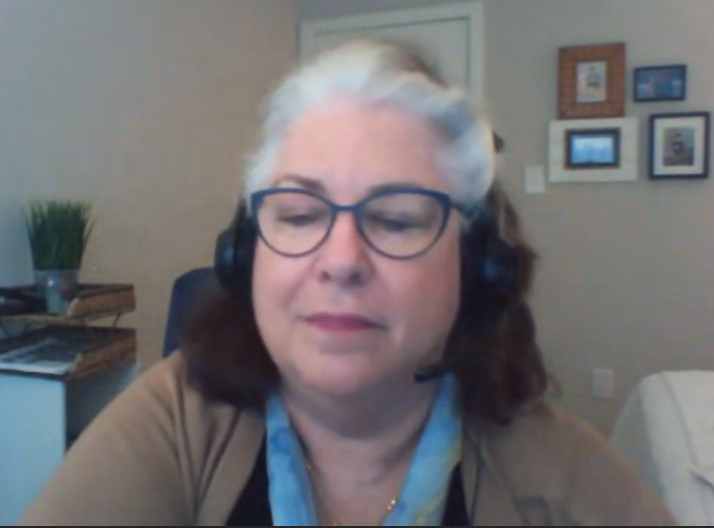Wait, I’m the president?
Photo courtesy of Joseph Triolo
Dr. Wigginton teaching one of her DE Government classes.
October 23, 2020
The fiercest political cycle is not currently happening on the national stage, but rather is happening on Blackboard Collaborate amongst fellow WS students in Dr. Wigginton’s DE Government classes.
Every year, Dr. Wigginton hosts a grueling election cycle between students in order to teach students about how the U.S. holds its elections. “I just think it’s the way students learn best,” Dr. Wigginton said when asked about why she has her class structured like this.
The method she uses is known as project-based learning or problem-based learning. Problem-based learning puts students in simulated, real-world situations in order for them to learn the content. For example, in the current U.S. election unit, Dr. Wigginton has students divided up into four different groups. Group one consists of the candidate and his or her team, group two consists of party leaders, group three consists of interest groups, and group four consists of the media. Each group has its own sub-groups and unique tasks. “For many years I have been interested in project-based learning,” said Dr. Wigginton. As a result, Dr. Wigginton has had a large amount of time in the line of project-based learning. She began studying with the Lucas Foundation, founded by director, producer, and writer, George Lucas, where she learned about knowledge and action, and then earned a certificate in the field from the University of Pennsylvania.
Another major part of Dr. Wigginton’s teaching is to increase active citizenry. “I think that when all students in the Commonwealth [of Virginia] are required to take a government course,” said Dr. Wigginton, “that government course, that job of that teacher, is to produce that active citizenry.”
“During the project-based learning, students are excited and engaged and I’m hoping that that translates to active citizenry.” said Dr. Wigginton. “I see my job as getting students ready to be participating citizens in our democracy, and voting is a very simple, yet so effective way to become a participatory citizen. So I encourage that at every turn. That’s my goal,” Dr. Wigginton continued on the topic of voting by sharing a story of a couple past students, “I had a couple of students who graduated last year who called me from […] their college dorm, and wanted to know about absentee voting and what they should do, what they should not do, and it was very encouraging to me to see that they got excited about voting. When we know that 18-24 years old have such a poor track record on voting turnout, when my students are voting, I’m excited.”





